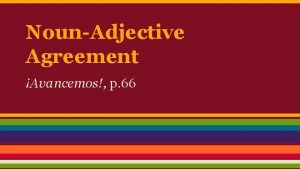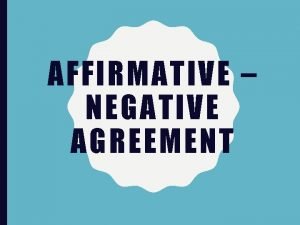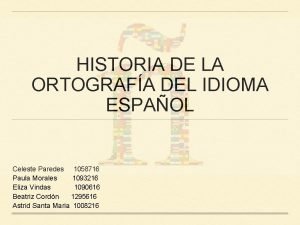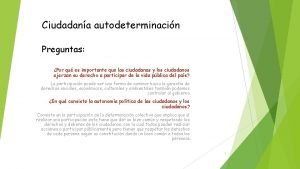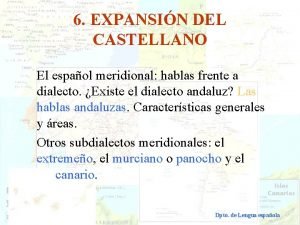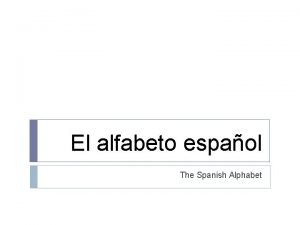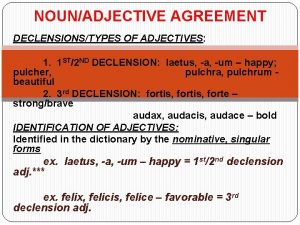NounAdjective Agreement ESPAOL 1U 1 L 2 Adjectives







- Slides: 7

Noun-Adjective Agreement ESPAÑOL 1—U 1 L 2

Adjectives describes an object An adjective is a word that _____________. gender In Spanish, adjectives match the _________ and the number _______ of the nouns they describe. after Adjectives are written ______ the noun.

Ejemplo: Masculine Feminine Singular Plural El chico alto Los chicos altos The tall boys La chica alta Las chicas altas The tall girls

Plural To make a noun plural: a vowel ◦ Add “s” if the word ends in ______. a consonant ◦ Add “es” if the word ends in ________. Ejemplos: ◦ Singular: alto trabajador altos Plural: __________ trabajadores

Ejemplos: e Adjectives that end in _____ match both genders. ◦ The intelligent teacher (m. ) ________________ El maestro inteligente ◦ The intelligent teacher (f. ) ________________ La maestra inteligente consonant match both genders: Many adjectives that end in a _____ El amigo joven ◦ The young friend (m. ) ____________ La amiga joven ◦ The young friend (f. ) _____________

Ejemplos: a to form Some adjectives that end in a consonant add _____ the feminine singular form. El chico trabajador ◦ The hardworking boy ____________ La chica trabajadora ◦ The hardworking girl _____________

Underline the correct form of the adjective: Hola, amiga. Te gusta jugar al fútbol y tú eres (inteligente/inteligentes), ¿no? ¿Quién es la persona famosa en Miami? No es un chico (grande/grandes). No es una chica (pequeño/pequeña). Tiene pelo (castaño/castaña) y es una persona (simpático/simpática). Es una mujer (serio/seria) pero le gusta pasar un rato con los amigos. Los amigos de ella son (atléticos/atléticas) también y les gusta practicar deportes. Hasta luego.
